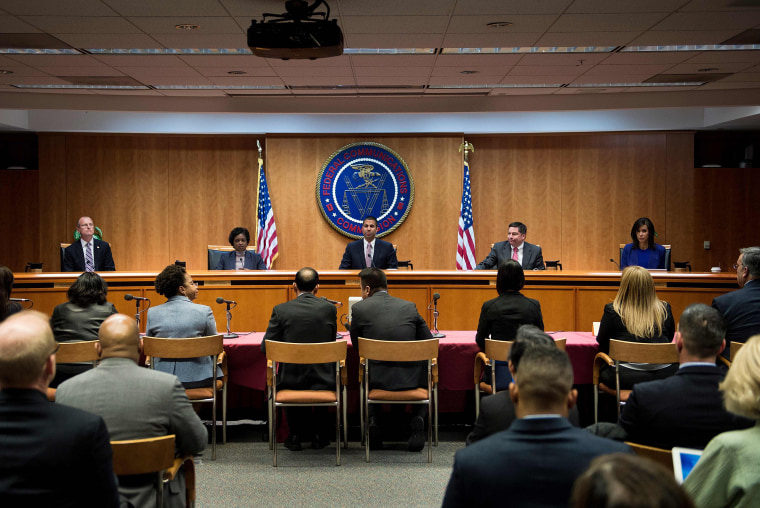It may not have been a hot-button issue throughout the 2020 presidential race, but Joe Biden's campaign endorsed a relatively ambitious tech agenda, including the restoration of net neutrality, and the expansion of online access.
But to have any success on this front, the incoming administration will need to work through the Federal Communications Commission. Keep that in mind when considering this Politico report from yesterday afternoon:
Senate Republicans approved President Donald Trump's nominee to the Federal Communications Commission on Tuesday — making a late-game, lame-duck attempt to stymie President-elect Joe Biden's influence over a broad swath of tech policy. The 49-46 confirmation vote for Nathan Simington, less than a week after the Commerce Committee approved him along party lines, means the FCC will have a 2-2 Democratic-Republican split when Biden takes office in January. A year from now, that could turn into a 2-1 GOP advantage if Republicans maintain control of the Senate and refuse to confirm any of Biden's nominees to the agency.
To be sure, this wasn't exactly a high-profile Senate confirmation vote, dominating front-page headlines across the country this morning, but there's a reason Republicans scrambled to confirm Simington: the goal is to create partisan gridlock on the FCC.
On Inauguration Day, current FCC Chairman Ajit Pai will step down, at which point the five-member commission will be evenly divided between two Democratic members and two Republican members. Naturally, the more the commission is deadlocked, the less it will be able to do -- especially on issues like net neutrality, which much of the right has seized on for reasons that don't appear to make any sense.
The incoming Democratic White House will nominate Pai's successor, but if Republicans fare well in Georgia's Senate runoffs, and Senate Majority Leader Mitch McConnell (R-Ky.) maintains control of the chamber, the FCC vacancy may remain unfilled indefinitely, simply by ignoring (or rejecting) Biden's choice.
Making matters slightly worse, one of the existing Democratic members of the FCC -- Jessica Rosenworcel, the agency's senior Democrat -- will see her term end at the end of 2021. The incoming president might want her to stay at her post, but that, too, would require a Senate vote.
If McConnell balks, and Biden's nominees go unconfirmed, the five-member FCC will be down to three members -- two of whom are Republicans -- by the end of next year.
In other words, in order for Biden to advance his tech agenda, he'll need (a) Raphael Warnock and Jon Ossoff to win in Georgia on Jan. 5; or (b) a Republican-led Senate to confirm Democrats to the FCC, clearing the way for a progressive agenda that Senate Republicans oppose.
To be sure, there may be some deal-making along the way, but yesterday's confirmation vote will resonate next year in ways the public ought to be aware of.

